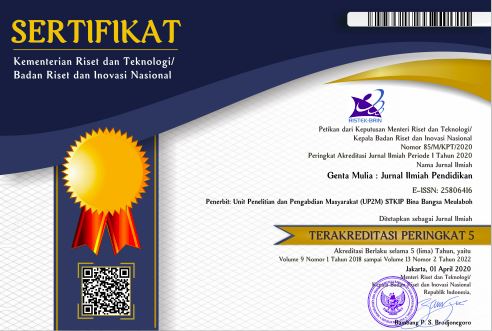PENGGUNAAN METODE INQUIRY BASED LEARNING TERHADAP PENINGKATAN MINAT BELAJAR SISWA PADA MATA PELAJARAN PENDIDIKAN PANCASILA DAN KEWARGANEGARAAN
Abstract
This research aims to find out whether there is an increase in students' interest in learning after using the Inquiry Based Learning method in the Pancasila and Citizenship Education subjects on Community Diversity in the Frame of Bhinneka Tunggal Ika using a quasi-experimental type of research. This research sample used two classes, namely class IX E as the experimental class and class IX C as the control class. Based on the research results, it can be concluded that the Inquiry Based Learning Method can increase students' interest in learning. This can be seen from the increase in the average value of the percentage of learning interest obtained by experimental class students, namely the pre-test results obtained a score of 67.00 and the average post-test value of learning interest for experimental class students after being given treatment using the Inquiry learning method. Based Learning obtained a score of 77.00. So it can be concluded that the learning interest of students in the experimental class, namely class IX E, experienced a significant increase of 10.00 after being treated using the Inquiry Based Learning method, so it can be said that the use of the Inquiry Based Learning method can be applied in the learning process in Education subjects. Pancasila and Citizenship material on Community Diversity in the Frame of Bhinneka Tunggal Ika. Next, a hypothesis test was carried out, based on the hypothesis using the Independent Sample T-test to determine whether there was a significant difference between the average score of the student interest questionnaire in the experimental class and the control class. The following results were obtained. : The results of the Independent Sample T-test hypothesis test show a significance value (2-tailed) of 0.000, less than 0.05, which means there is a significant difference in the learning interest of students in class IX E.






